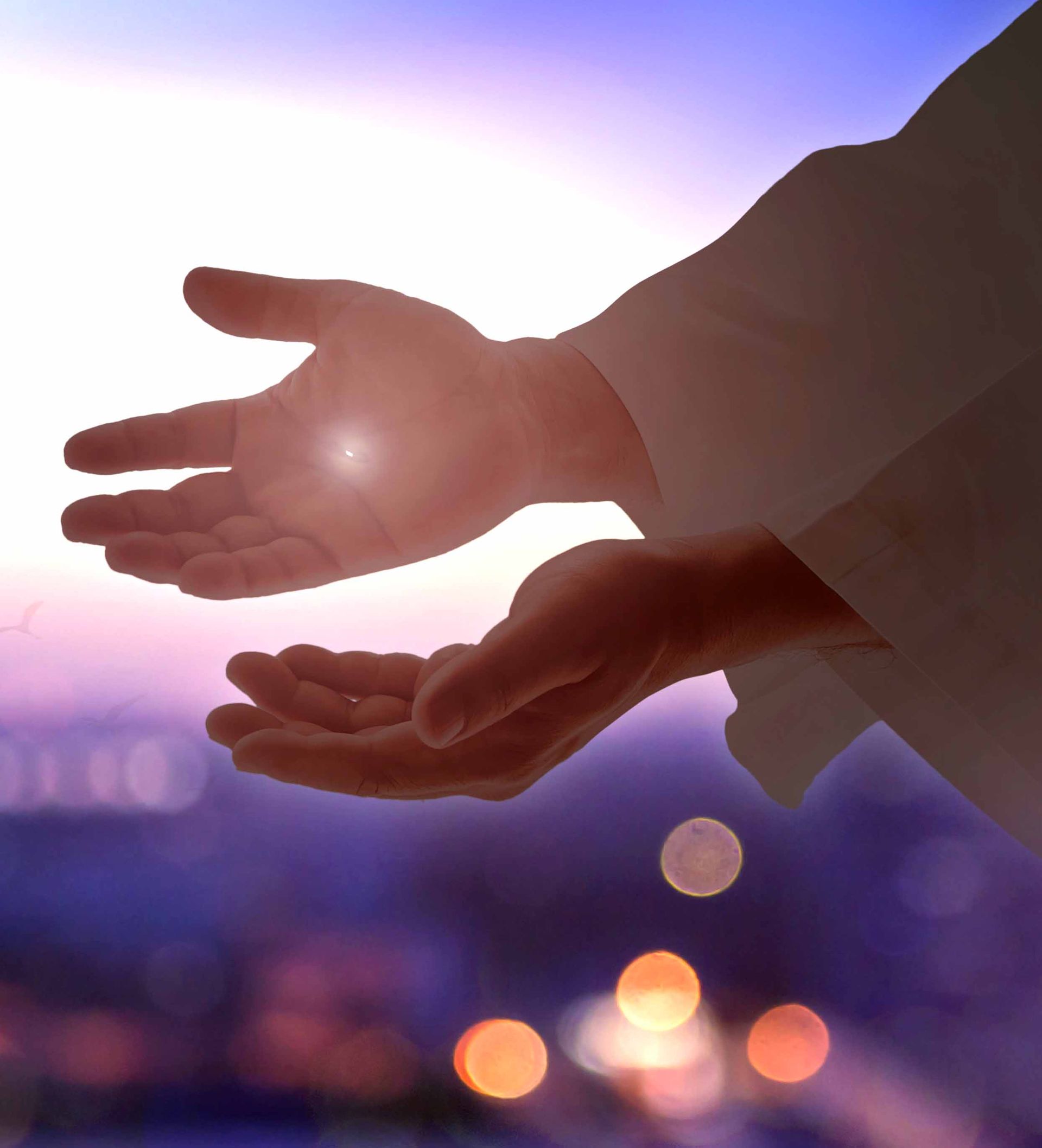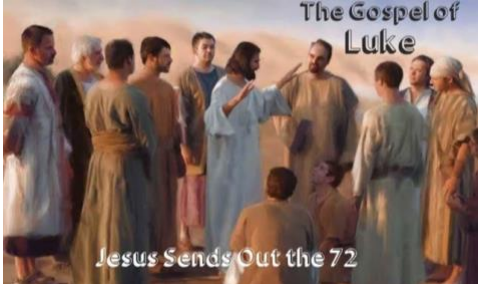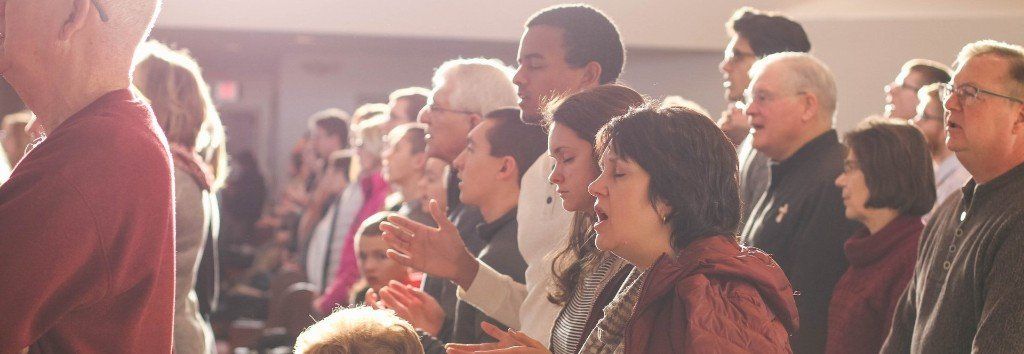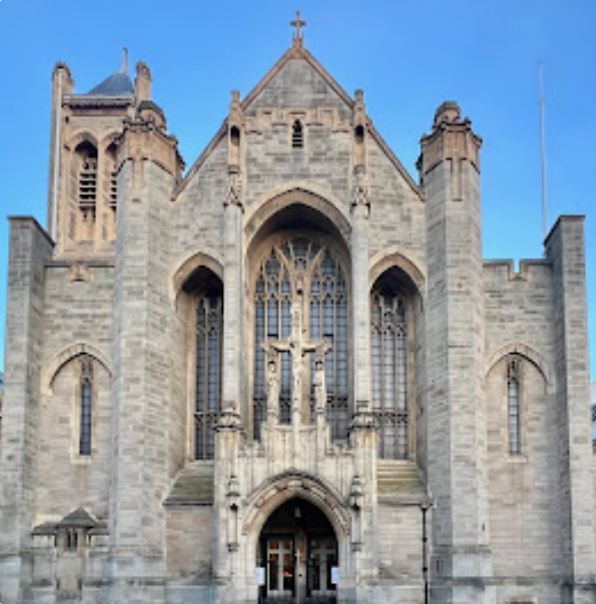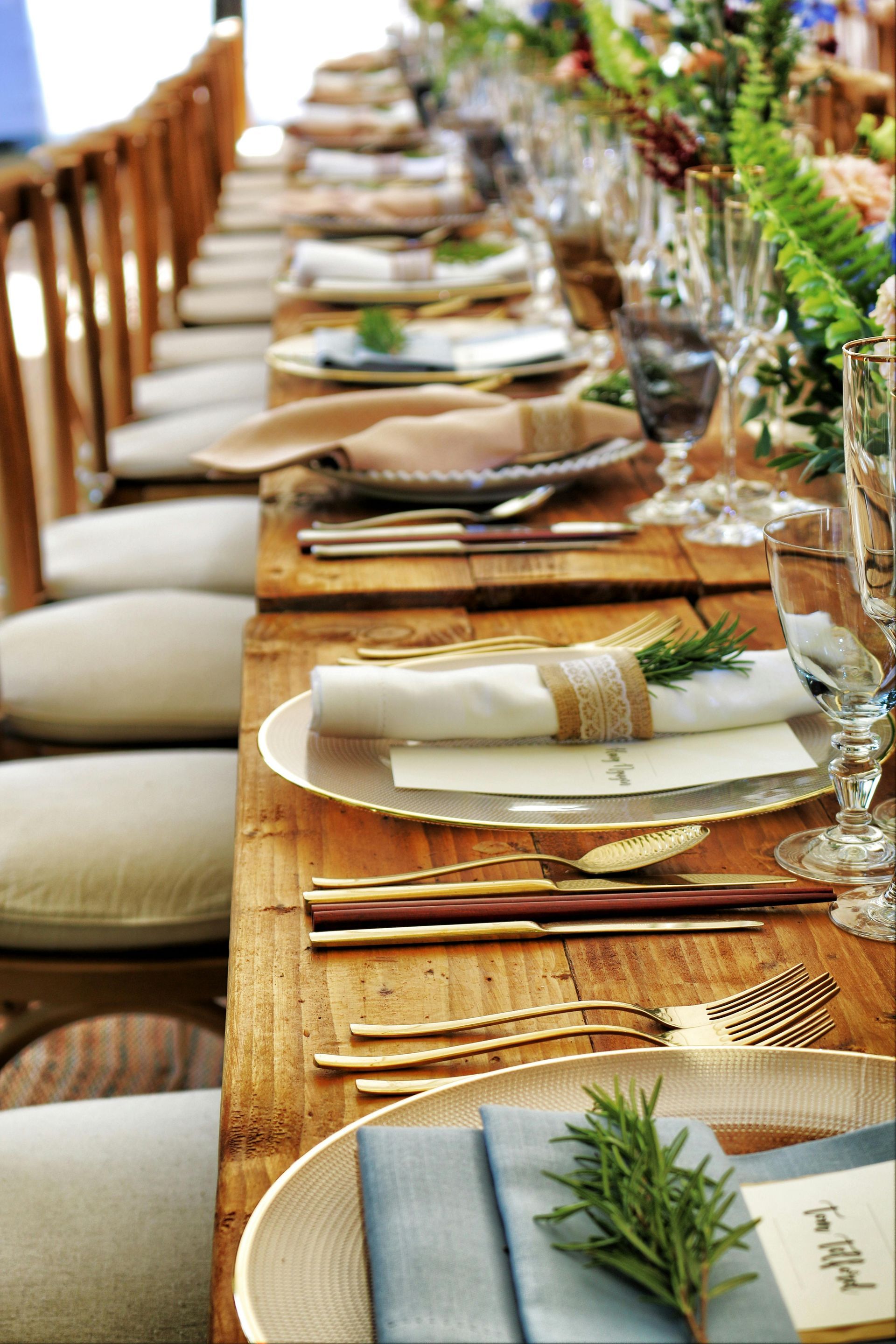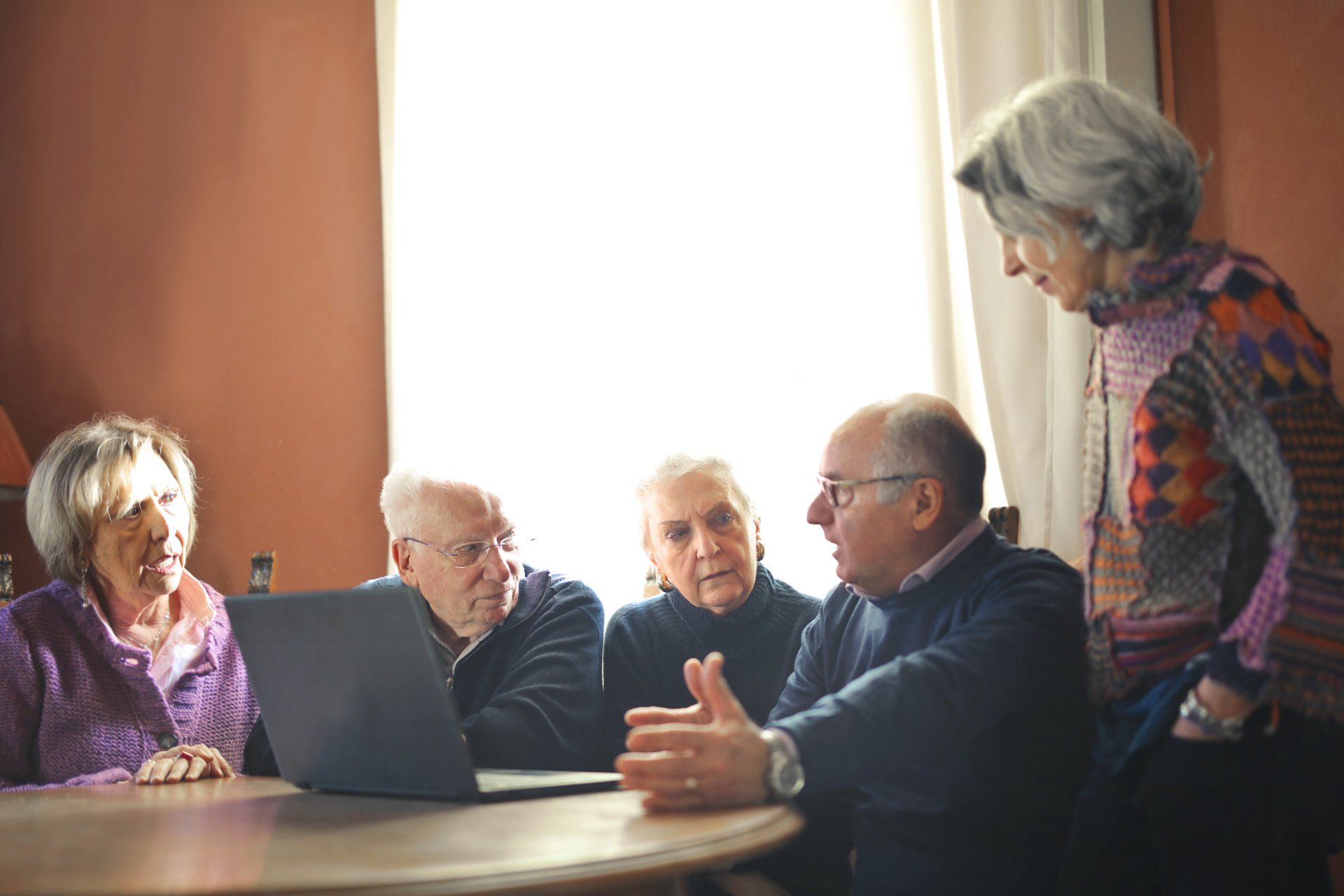How many of the things you did when you were 10 years old do you still do today? A lot of things I used to do I don’t do anymore. This is especially true of physical activities—football is a thing of the past for me.
Even my prayer life has changed. There are some prayers and devotions that I no longer pray. However, Mass remains constant—in my life and in the life of the Church. After 2,000 years, God’s invitation to the banquet still stands.
Humans have long asked these questions. The whole Book of Job in the Bible is about the question of suffering. Christians have tried to discover meaning for suffering in studying and praying about the suffering and death of Jesus told in the Gospels. Some of the more violent biblical perspectives, however, fail to satisfy fully. Hearts and minds long for the God of compassion revealed by Jesus.
I am going to look at five reasons why I go to Mass. What are your reasons? I hope mine will help you to reflect on yours.
1. I need others to pray well.
It is hard to do difficult things alone. And following Jesus can be tough work. One of the reasons why Alcoholics Anonymous, Weight Watchers and other similar programs work is because they are group efforts. To change our lives in Biblical terms, to repent , to convert we need the help and support of others. At Mass I join with others who are also trying to live the gospel and follow Jesus.
Sometimes when I try to make good decisions decisions based on gospel values I get overwhelmed by the extent of social evils in the world. How can I live justly in the midst of so much injustice? How can I live gospel poverty in the midst of so much conspicuous consumption? How can I forgive in a world that seeks vengeance?
At Mass I am reminded and assured that I am not alone in my efforts. I am a member of the Church. I am a member of the Body of Christ. I share in the Spirit of Christ and I am empowered by that Holy Spirit. At each Eucharist I hear the words: Take this, all of you, and drink from it: This is the cup of my blood, the blood of the new and everlasting covenant. It will be shed for you and for all so that sins may be forgiven. Together we can make a difference in this world. Together with Christ we can make a tremendous difference. And at Mass we are truly gathered with Christ: Where two or three are gathered together in my name, there am I in the midst of them (Mt 18:20).
2. The Mass enables me to pray with my whole body.
When I pray by myself, at home, I pray mainly with words. I talk to God that s what I was taught prayer is, talking to God. But when I go to Mass, I pray with more than words; I pray with my whole body. I pray with bread and wine, water and oil, coming together and going apart, standing still and processing forward, lighting candles and smelling flowers, even dust and ashes!
At Mass I acknowledge that I am more than just my head or my soul. I am saved body and soul. I am saved body, mind and spirit. And I am saved by a God who is more than just spirit. I am saved by a God who became flesh and made his dwelling among us (Jn 1:14). Because of the Incarnation, I can approach God not only with words, but with the elements of my daily life: eating and drinking, sharing meals and singing songs.
Jesus knows about our daily life because he lived here among us. And he knows about us not just in his head, but in his body. Jesus knew the strain of lifting a heavy table, the sweat of working in the desert sun, the pain of hunger, the embrace of friends, the joyful taste of rich red wine! Consequently, I can pray with earthly things, I pray with symbols. Symbol is the language of the Mass.
Symbols don t always come easily for us. Our bishops remind us that American culture which is oriented to efficiency and production has made us insensitive to the symbolic function of persons and things ( Environment and Art in Catholic Worship, 16). If symbol is the language of the Mass, people who are schooled in the scientific, the practical and countable may find it a foreign language, and may find the symbolic nature of the Mass as difficult as speaking a foreign language. They may think that symbols are not real, yet symbols are very real. A kiss between lovers is real communication. It says more than words.
Symbolic language is essential to my prayer life because there are times when mere words are just not enough. Symbols can mean more than a declarative statement or scientific formula or theological dogma.
For example, what does the Mass mean? When I received Holy Communion for the first time at the age of six, I did so with great reverence. I knew what I was doing. I knew what the Mass meant. Today, I certainly know more about the Eucharist than I did then. But the experience of sharing this sacred meal remains the same experience.
It is an experience that is beyond words. I knew what it meant when I was six; I know what it means now; yet the Mass is beyond all those meanings. That is the beauty of the Mass: It means more than we can ever understand it to mean. A symbol says more than mere words could ever say. The Mass is more than words. At Mass I pray with my whole body.
3. Besides talking to God, I need God to talk to me.
I often think of prayer as talking to God, but I have learned from other situations that when I talk too much, I don t learn anything. A real conversation needs not only talking, but also listening. I go to Mass to listen to God speaking to me. I hear Christ s voice in the readings since it is he himself who speaks when the holy Scriptures are read in the Church ( Constitution on the Sacred Liturgy, 7). I hear Christ s voice in the homily. I hear his voice in the other members of the worshiping assembly in their devotion, their petitions, their sacrifices. And most especially I hear his voice in the prayers of the Mass.
The Mass is the prayer of the Body of Christ, head and members. The priest always prays in the first-person plural we, us because it is our prayer, all of us together. We pray through Christ our Lord because it is the prayer of Christ united with his Body, the Church. I hear the voice of Christ in the prayers of the Mass.
At each Mass I hear Christ s words, This is my body…this is my blood…do this in memory of me. God speaks to me in these words. I hear proclaimed the reality of the central mystery of faith. I believe that Christ died for our sins, rose from the dead and gives us his body and blood to eat and drink. For my flesh is true food, and my blood is true drink. Whoever eats my flesh and drinks my blood remains in me and I in him (Jn 6:55-56).
But the bread does not become just any flesh it becomes the flesh of Christ, the Christ who gave himself up totally for us. It becomes the flesh of Christ who gave his life for the poor, the flesh of Christ who gave up his very life to reveal how much God loves us.
When I hear the words, Do this in memory of me, I hear God s voice not just challenging me to go to Mass but also challenging me to that self-giving love that the Mass celebrates. We are to become the Body of Christ. We are to live as Christ lived and act as Christ would act. This is the hard part of the Eucharist. The difficult thing is not only believing that the bread and wine become Christ s body and blood; the difficult thing is accepting the challenge to do this to live with that same self-giving love.
After 2,000 years, God s invitation to the banquet still stands. We still hear the words do this…. Yet that challenge is continually modified by the culture and the historical situation into which it is proclaimed. Think about our challenge in Christ s words, Do this in memory of me.
Here in America, at the beginning of this new millennium, what would Christ do in the face of racism, xenophobia, violence in families, the increasing difference between rich and poor, the inequitable distribution of nature s goods, the struggle of the Church to be holy?
At Mass, when we get up and leave our pew at Communion time and come forward to receive the Bread and drink the Cup, our Amen to the words Body of Christ, Blood of Christ implies that we accept Christ s challenge.
4. Being born again once didn t quite do it.
I know that Baptism is a new birth and that in Baptism all of my sins are taken away. But I continue to sin and I continue to need to hear the words, Your sins are forgiven. When I go to Mass, I am continually assured of God s ongoing love. Consider how many times during Mass we seek God s mercy! May almighty God…forgive us our sins (Penitential Rite); You take away the sin of the world: have mercy on us (Glory to God); Though we are sinners, we trust in your mercy and love. Do not consider what we truly deserve, but grant us your forgiveness (Eucharistic Prayer I); Our Father…forgive us our trespasses as we forgive those who trespass against us (Lord s Prayer); This is the Lamb of God who takes away the sins of the world….Lord, I am not worthy…but only say the word and I shall be healed (Invitation to Communion).
At the heart of each and every Mass we hear Christ s command to Take this, all of you, and drink from it: This is the cup of my blood, the blood of the new and everlasting covenant. It will be shed for you and for all so that sins may be forgiven.
While I was born again in Baptism, I feel a need to be born again, and again, and again. This is why I go to Mass. I promise again, as my parents and godparents promised for me at my Baptism, to die to sin, to reject Satan, and all his works and all his empty promises. At each Mass I promise again to follow more closely in the footsteps of Jesus.
Each time I enter the church for Mass, I sign myself with water from the baptismal font, or holy water font, to remind myself of my Baptism. Mass is the way I renew the promises of my Baptism. Mass is, as one of my friends put it, the repeatable part of Baptism.
When I go to Mass I am assured again of this truth: We were indeed buried with [Christ] through baptism into death, so that, just as Christ was raised from the dead by the glory of the Father, we too might live in newness of life (Rom 6:4). New life: That s what I want from Mass.
5. The Mass helps me find the sacred in the ordinary.
Do you receive those Christmas form letters where your friends tell you all the exciting things they they have done in the past year? I get lots of those letters. I send them out myself!
But while, in a good year, there may be a couple exciting events, most of my life is ordinary. We can talk about new life and life in the risen Lord, but most of my life is simply routine. I get up, go to work, come home, go to bed.
If Christianity is going to have any real influence on my life it must touch me in the ordinary and the routine. At Mass we use ordinary things: eating and drinking, standing and sitting, shaking hands and keeping quiet. In this ordinary stuff, I find God.
Once, when parishioners asked St. Augustine (354-430 A.D.) what had happened to all the miracles they read about in the Gospels feeding thousands with a few loaves and raising the dead to life St. Augustine asked them to think of the grain of wheat falling to the ground and producing stalk and blade. Where can you find a greater miracle than that! Often the greatest miracles are to be found in the ordinary.
The Mass is the principal element in my life that has helped me develop a spirit of wonder and awe in the presence of the ordinary. St. Augustine told his parishioners: If then you are the body of Christ and his members, it is your sacrament that reposed on the altar of the Lord .Be what you see and receive what you are (Sermon 272). There you are on the table, and there you are in the chalice (Sermon 229).
At the Mass my ordinary life is taken up into God s great plan for the world. The Second Vatican Council says that Mass is the outstanding means whereby the faithful may express in their lives and manifest to others the mystery of Christ and the real nature of the true Church ( Constitution on the Sacred Liturgy, 2). At Mass we not only hear of God s dreams for us, we act them out: We are taken up into those dreams.
I hear of God s dreams of justice for all peoples of all nations. In Holy Communion I see how the Body and Blood of the Lord are broken and shared and how everyone receives enough the rich and the poor, young and old, hungry and weak. I am forced by the contrast between the Table of the Lord and the table of this world (where very few have enough indeed millions are starving!) to rethink my ideas of justice and charity. At Mass, we don t just pray, Thy kingdom come, we experience what the kingdom promises. We don t just talk about Holy Thursday, we eat and drink. We not only talk about Good Friday, we are sacrifice. We not only attend Easter liturgies, we are risen in the promise of Christ. At Mass, our lives are taken up into the paschal victory of Christ.
At Mass our ordinary daily lives are taken up into eternity. What we do at Mass is but a hint of what we will be doing forever in heaven when, freed from every shadow of death, we shall take our place in the new creation (Eucharistic Prayer, Reconciliation I). In the new world where fullness of God s peace will be revealed we will be seated at table with people of every race, language, and way of life to share in one eternal banquet with Jesus Christ the Lord (Eucharistic Prayer, Reconciliation II). That s why I go to Mass!
Thomas Richstatter, O.F.M., has a doctorate in sacramental theology from Institut Catholique of Paris and serves on the faculty of St. Meinrad School of Theology. He is a popular writer and lecturer whose latest book is The Sacraments: How Catholics Pray (St. Anthony Messenger Press).

